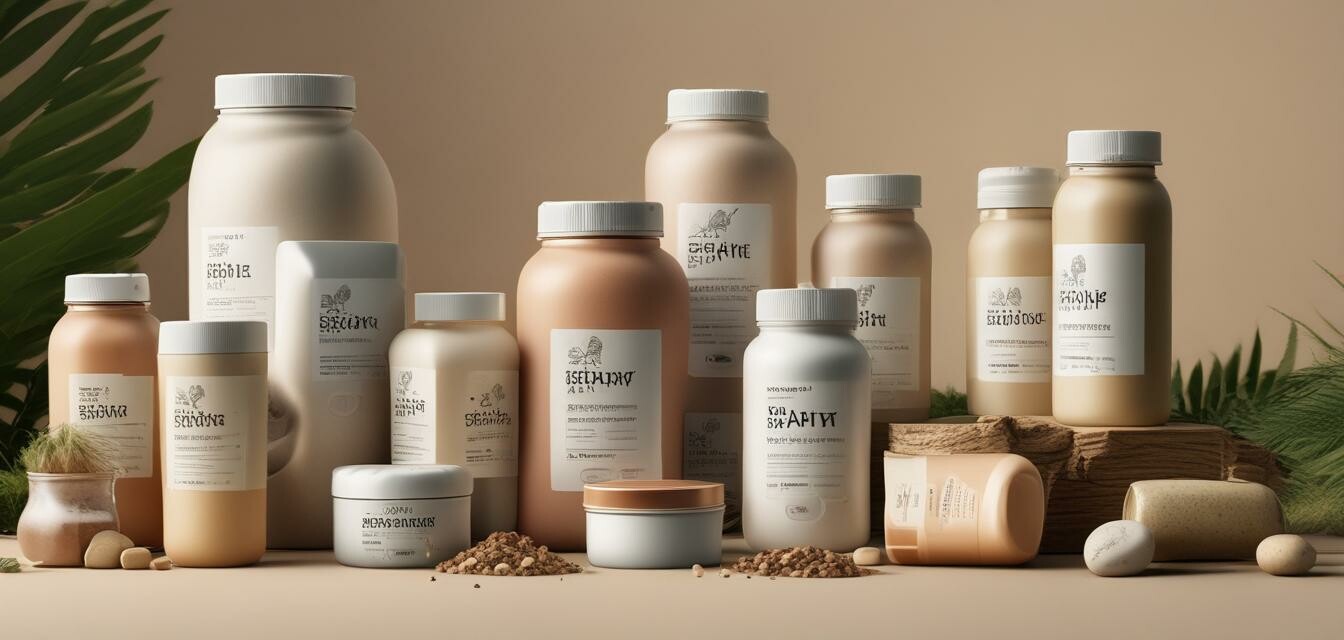
Innovations in sustainable supplement packaging
In recent years, the supplement industry has witnessed a significant shift towards environmentally sustainable practices. As consumers become more eco-conscious, companies are innovating to meet these demands. This article explores the emerging innovations in eco-friendly packaging within the supplement industry and their environmental impact.
Key Takeaways
- Eco-friendly packaging is becoming crucial in the supplement industry.
- Innovative materials like biodegradable plastics and plant-based inks are gaining popularity.
- Recyclable and compostable options are essential for reducing environmental footprints.
- Brand transparency and sustainability initiatives are increasingly influencing consumer choices.
Understanding the impact of packaging in the supplement industry
The packaging of dietary supplements plays a crucial role in protecting the products from contamination, degradation, and moisture. However, it also contributes significantly to environmental pollution, especially when single-use plastics dominate the market. Evaluating the carbon footprint of packaging options has become a priority for brands that value sustainability.
Current trends in supplement packaging
Let's take a closer look at some of the trends that are shaping the future of sustainable supplement packaging:
| Trend | Description |
|---|---|
| Biodegradable materials | Materials that break down naturally without leaving harmful residues. |
| Minimalist packaging | Reducing packaging waste through streamlined designs and minimalistic approaches. |
| Reusable containers | Encouraging consumers to return or reuse packaging for future orders. |
| Plant-based inks | Using non-toxic, biodegradable inks for printing on packaging materials. |
| Digital labeling | Implementing QR codes or digital disclosures instead of extensive printed materials. |
Innovative materials in sustainable packaging
As brands explore more sustainable options, they are adopting innovative materials in packaging design. Below is a list of some materials that are making waves in the industry:
- Compostable plastics: Made from natural materials such as corn starch that break down into organic matter.
- Recycled cardboard: Utilizing recycled products for boxes and inserts reduces deforestation.
- Bamboo: A rapidly renewable resource, often used for supplement containers.
- Glass: Recyclable, durable, and non-reactive, making it a popular choice for premium products.
- Aluminum: Ideal for preserving product integrity and is highly recyclable.
The role of consumer awareness
As more consumers demand sustainable choices, brands are responding. Transparency about how products are packaged is increasingly important. Educating consumers on the impact of their purchases encourages informed decisions. Supplement retailers should consider sharing information about their sustainable practices through their product listings, strengthening consumer trust.
Environmental benefits of sustainable packaging
Implementing sustainable practices not only helps brands keep up with consumer preferences but also has tangible environmental benefits:
| Benefit | Traditional Packaging | Sustainable Packaging |
|---|---|---|
| Carbon footprint | Higher due to reliance on fossil fuels. | Lower due to renewable materials and reduced waste. |
| Waste generation | Significant non-biodegradable waste. | Reduced landfill contributions with compostable and recyclable materials. |
| Resource depletion | High demand for virgin materials. | Encourages recycling and responsible sourcing. |
| Consumer sentiment | Less engagement; consumers often overlook sustainability. | Greater engagement; consumers prefer eco-friendly brands. |
Future outlook on sustainable packaging in supplements
The future of sustainable packaging in the supplement industry looks promising. With ongoing innovations and increasing consumer expectations, brands that prioritize ethical practices are likely to thrive. Some trends to watch include:
- Lifespan extension: Enhancements in packaging technology for maintaining product freshness without excessive material.
- Smart packaging: Integration of technology for tracking and authentication purposes.
- Education initiatives: Brands focusing on consumer education regarding sustainable practices.
- Collaboration for sustainability: Partnerships among manufacturers, businesses, and organizations to encourage eco-friendly solutions.
Pros
- Reduced environmental impact.
- Increased customer loyalty and brand trust.
- Meets growing consumer demands for sustainable products.
Cons
- Higher initial costs for sustainable materials.
- Potential for limited availability of innovative materials.
- Complexity in recycling processes for certain eco-friendly materials.
Conclusion
As the supplement industry continues to evolve, the innovations in sustainable packaging stand at the forefront of this change. By investing in eco-friendly practices, brands not only contribute to environmental preservation but also align themselves with the values of today's conscientious consumers. If you're interested in learning more about sustainable options in supplements, explore our herbal supplements or vegan supplements sections.
Staying informed about new trends is essential for making ethical choices in your health journey. Our News & Trends section provides insights on the latest sustainable innovations in the industry, ensuring you are empowered to make informed decisions for your health and the planet.